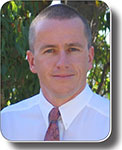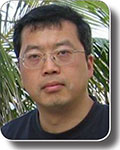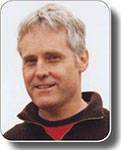Climate change impact on NW Shelf seabed evolution and its implication for offshore pipeline design
Fangjun Li A , Cedric Griffiths A , Tristan Salles A , Chris Dyt A , Ming Feng B and Chris Jenkins CA CSIRO Petroleum
B CSIRO Marine and Atmospheric Research
C University of Colorado
The APPEA Journal 48(1) 171-190 https://doi.org/10.1071/AJ07011
Published: 2008
Abstract
In this paper, the impact of climate change on seabed sediment transport in the north-western region of the Australian Exclusive Economic Zone (EEZ) has been investigated by a state-of-the-art numerical sediment transport model, Sedsim. It links the environmental forces and seabed response into a dynamic sedimentation system. Although numerical implementation of some forcing and responses is approximate, it is a significant step forward in understanding the nature of potential long-term seabed changes as well as in evaluating the likely impact of climate change on the northwest Australian continental shelf. It was found that:
the modelled high-energy climate change scenario produced 17% and 38% increases on total volumes of seabed transport in the northern and southern part of the Australian northwest region respectively;
the Indonesian ThroughFlow (ITF), the Leeuwin Current (LC) and high energy waves (associated with tropical cyclones) play the most important roles in large-scale long-term evolution of the NW seafloor;
offshore pipeline design could usefully incorporate the changed risk profiles due to long-term non-stationarity of climate-derived forcing processes.

Fangjun Li is a senior research scientist at CSIRO Petroleum Resource. She obtained her BEng and MEng degrees in coastal engineering in 1988 from Dalian University of Technology, China. Then she worked nine years as a research assistant and research fellow at State Key Laboratory of Coastal and Offshore Engineering, China. In 2001, she was awarded her PhD (Civil Engineering) at the Centre for Offshore Foundation Systems, The University of Western Australia. Since then she joined CSIRO Petroleum and worked primarily on the code development for Sedsim and Australian seabed model. She has published studies on modelling of local scour around offshore pipelines, 3D flexural isostasy, and coastal morpho-dynamic models. Fangjun.li@csiro.au |

Cedric Griffiths received an honours degree in Geology from Durham University in1972, and a PhD from the University of Newcastle-upon-Tyne in 1983. Cedric has worked with deBeers, Exlog, Zambian Geological Survey, Sintef Petroleum, BP, Stratigraphic Research International (co-founder) and CSIRO. He has held positions as Nordic Council Research Professor in petrophysics at NTH and the South Australian State Chair in Petroleum Geology. He was Acting Director of the NCPGG from 1996 to 1998. He has held council positions in the International Committee on Quantitative Stratigraphy, and the International Association of Mathematical Geologists. He co-edited Geological Application of Wireline Logs II and is a co-author of Sequence Stratigraphy. He is a Chartered Fellow of the Geological Society of London. Cedric.griffiths@csiro.au |

Tristan Salles is working as a post-doctoral fellow at CSIRO in the Predictive Geoscience team using Sedsim (stratigraphic forward modelling). Tristan’s principle interests are in numerical programming of submarine gravity flows (turbidity current, debris-flows…), transport-erosional-depositional processes and post-depositional sediment evolution (compaction, diagenesis…). Tristan obtained his undergraduate degrees in 2003 both from Centrale Engineering School (France) and Marseille University (France) in the field of marine sciences and physical oceanography. He joined IFP in 2003 where he made a PhD (finished in 2006) in collaboration with Bordeaux University. He was working on the construction of a numerical model to simulate the sedimentary fill of canyons and channel-levee complexes present in turbiditic. Tristan.Salles-Taing@csiro.au |

Chris Dyt is an applied mathematician working with the Forward Stratigraphic Modelling (SFM) program Sedsim. Chris’ principal interests are in hydrodynamics and numerical programming. Chris has been working with the Sedsim program on and off since 1996 and has been instrumental in its conversion from a research code to a commercial software application, first working at the NCPGG at Adelaide University before joining CSIRO in 2000. Chris obtained his doctorate and undergraduate degrees at Monash University, where he was working on numerically modelling the convective motions of the evolving solar atmosphere. He then worked for nine months in the mathematics department at LaTrobe University on numerical solvers for Ordinary Differential Equations. Member: PESA, SIAM, IAMG. Chris.dyt@csiro.au |

Ming Feng is a physical oceanographer with CSIRO Marine and Atmospheric Research Division and the Wealth from Oceans Flagship. He obtained PhD degree from a joint program of Chinese Academy of Sciences and University of Hawaii in 1997. He joined CSIRO in 1999 and has worked in the Australian Argo float pilot project, the Strategic Fund from Marine Environment research, and the Western Australian Marine Science Institution (WAMSI) since then. He now leads the WAMSI project on Dynamics and impact of the Leeuwin Current on the marine environment off Western Australia, whose aim is to downscale the climate change impact on the regional marine environment. Member: American Geophysical Union and Australian Meteorological and Oceanographic Society. ming.feng@csiro.au |

Chris Jenkins is a Research Scientist at INSTAAR, University of Colorado, Boulder (USA) where since 2001 he has built the huge multi-institutional global seafloor database dbSEABED. After a PhD. from the University of Cambridge (England, 1979) in stratigraphy he lectured at several Australian universities. In1983 he joined the inaugurating Ocean Sciences Institute at The University of Sydney (Australia) and conducted many geophysical and geological marine programs including constructing a national seabed database for Australian waters. His research interests range through sedimentology, geophysics, computing sciences, and applied marine science projects. chris.jenkins@colorado.edu |


